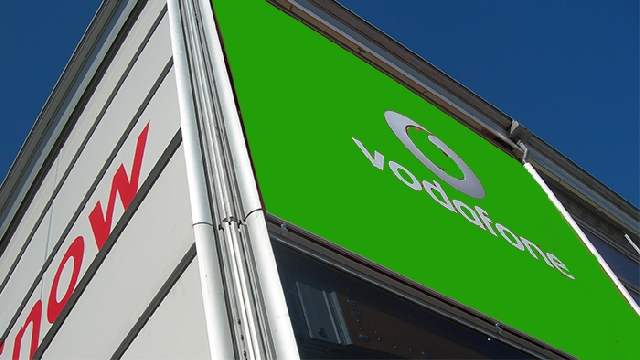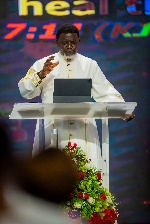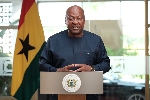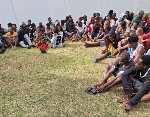Vodafone goes green in Europe
 From 1 July, Vodafone says “our mobile and fixed networks, our data centres, our shops and our offices will all use energy generated from solar, wind or water sources”
From 1 July, Vodafone says “our mobile and fixed networks, our data centres, our shops and our offices will all use energy generated from solar, wind or water sources”
Vodafone has announced that “we’ve reached the bold target we set in July last year – to ensure our entire operations across Europe are 100% powered by electricity from renewable sources”.
From 1 July, Vodafone says “our mobile and fixed networks, our data centres, our shops and our offices will all use energy generated from solar, wind or water sources”.
“This is a key milestone for Vodafone on our journey to reduce our own global carbon emissions to ‘net zero’ by 2030 and across our entire value chain by 2040”, the telco said in a statement.
In the last year, Vodafone has reduced its total Scope 1 and 2 greenhouse gas emissions by 30% year-on-year.
“While we’ve increased our share of renewable electricity in Europe from 80% last year to 100%, we have also focused heavily on energy efficiency projects including more efficient mobile technology, decommissioning legacy equipment and better analytics across our network”.
Demand on Vodafone’s networks has “risen sharply” as a result of the COVID-19 pandemic, but despite a 47% increase on mobile traffic alone, “we have managed to keep our energy use roughly flat”.
“It’s important that we reduce our own carbon emissions, but our networks and technologies also play an equally crucial role in helping to address climate change – assisting our customers to reduce their own carbon footprint”, Vodafone said.
The Carbon Trust calculates that Vodafone has enabled its customers to avoid around 7.1 million tonnes of CO2e in FY21.
More than half of its 123 million IoT connections have directly enabled customers to reduce emissions in their own operations.
Vodafone said it “strongly believes in the drive toward a circular economy, and we are working hard to ensure that we reduce as much physical waste from our operations as possible”.
“We managed to reduce our ‘network’ waste by 22.5% year-on-year, with 98.7% of it sent for reuse and recycling”, the company said.
“This is, in part, down to the success of initiatives like our asset marketplace, an internal ‘eBay’ that encourages Vodafone’s markets to re-sell to each other and then re-use excess stock, or large assets like masts or antennae that have been decommissioned”.
“In one year alone, we saved €10 million and avoided the equivalent of 1,250 tonnes of CO2e. We’re now actively working to see if we can roll our marketplace out to other partners and potentially the wider telecoms industry”.
Several Vodafone markets operate device buyback schemes or offer trade-in and repair services to extend the life of working phone handsets.
In May, Vodafone jointly launched the Europe-wide Eco Rating labelling scheme, working with four other major operators to give consumers a way to identify and compare the most sustainable mobile phones.
“Ultimately, we believe Eco Rating can drive consumer choice and has the potential to encourage suppliers to reduce the environmental impact of their devices”, Vodafone noted.
It noted: Many of the challenges that we face in reducing carbon and minimising waste are best tackled together as a society, with businesses and governments aligning to amplify their efforts in delivering common outcomes”.
In March, Vodafone was “proud” to be a founding member of the European Green Digital Coalition, which brings together like-minded companies from the tech sector to work with European policymakers.
The objective is to drive the implementation of digital solutions in the fight against climate change and ensure that investment is targeted in the areas where it can make a real difference.
“Accelerating this digital transformation is crucial as our economies and societies build back better – and more sustainably – from the pandemic. We believe that urgent and sustained action is required to address the climate emergency, and we have a clear strategy in place to meet our targets. Digital technology holds the key to saving energy, using natural resources more efficiently and creating a circular economy”.
During Mobile World Congress Barcelona 2021 next week, Vodafone said “we’ll be celebrating our commitment to society as the foundation of everything we do as a company”.
“We intend to showcase the positive impact we bring to society through our technology, expertise and connectivity – including demonstrating some new applications of innovation that can help protect the environment”.
Trending News

‘Make those who swallowed our riches vomit it’ – Agyinasare charges Mahama gov’t, says ‘not many’ve been tried, jailed yet’
11:16
2 lovers arrested over setting apartment ablaze at Oyarifa Anointed Down
12:36
Police bust suspected illegal arms deal, recover CZ rifle
23:12
GA/R: Tabora landlord arrested for allegedly aiding MoMo and BEC scams
00:04
Ghana is “rising again,” President Mahama declares in 2026 New Year message
21:45
V/R: 15 arrested after sporadic shooting at Ho central mosque, 7 hospitalised
12:19
A/R: Police arrest suspect for conspiring to commit robbery at Manso Abrense
21:27
GoldBod dismisses claim of losses as “imaginary”
12:00
2024 Adabraka ₵7.5m daylight jewellery shop robbery: Police arrest suspect
19:29
141 arrested in major cybercrime crackdown targeting MoMo fraud, online scams
10:36




